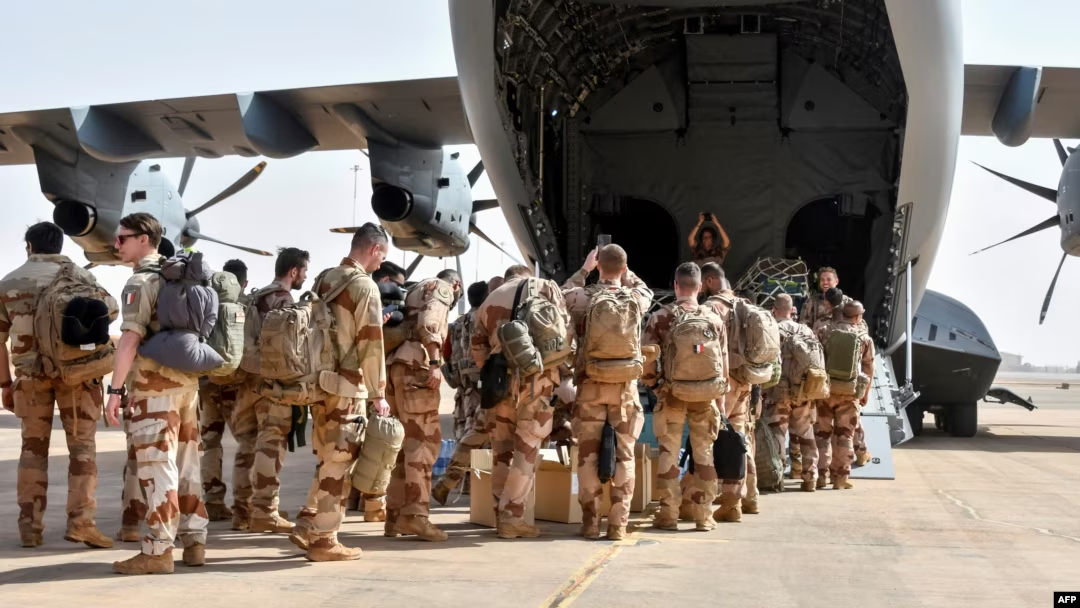Nigeria and France Forge New Military Alliance Amid Withdrawal from Sahel
In a significant shift in regional security dynamics, Nigeria has confirmed a new military collaboration with France, despite growing calls from other African nations for a complete withdrawal of French forces from the Sahel region. The deployment of French troops to Nigeria comes as several African countries, including Chad, Mali, and Senegal, are scaling back their military ties with France. This move has sparked debate about the implications for Nigeria’s sovereignty and its role in the broader African security landscape.
French Troops Arrive in Nigeria to Combat Boko Haram
On December 13, 2024, Nigerian officials welcomed French soldiers to Maiduguri to aid in combating Boko Haram insurgents. This collaboration strengthens Nigeria’s ongoing efforts against the militant group, which has been active for over a decade. Lt. General Femi Oluyede emphasized the partnership’s importance in addressing the persistent insurgency threat in the region.
France’s Motivations: Strengthening Regional Influence
For France, the military engagement in Nigeria marks a strategic pivot as it faces growing resistance from former colonies in West and Central Africa. With its forces withdrawing from countries like Mali, Niger, and Burkina Faso, France is keen to maintain its presence in the region through partnerships with stable countries like Nigeria. By assisting in the fight against Boko Haram, France not only contributes to regional stability but also secures continued influence in a vital part of Africa, where insurgencies and terrorism have become persistent threats.
What Does Nigeria Stand to Gain?
While Nigeria’s partnership with France offers military support, the decision comes with potential trade-offs. The deployment of foreign troops, even if temporary, raises concerns about Nigeria’s sovereignty and independence. Critics argue that hosting French forces could set a precedent for more foreign military involvement in the country, undermining its control over domestic security. However, proponents of the collaboration emphasize the tangible benefits: enhanced counter-insurgency capabilities, intelligence sharing, and specialized military expertise to confront well-equipped insurgents.
The Cost to Nigeria’s Sovereignty
Despite assurances from Nigerian officials that no permanent French military bases will be established, the presence of foreign troops on Nigerian soil is bound to attract scrutiny. The country’s government has repeatedly stressed its commitment to protecting sovereignty, yet recent reports have indicated that the partnership may go beyond the initial counter-insurgency assistance. With increasing demands for security sector reform, some experts warn that Nigeria’s reliance on external forces could dilute the authority of its national army and hinder the development of indigenous military solutions.
Regional Dynamics: France’s Changing Role in Africa
The growing shift in African attitudes towards French military presence is undeniable. Countries like Mali, which once hosted thousands of French soldiers as part of Operation Barkhane, have severed ties with France, citing a desire for greater autonomy and a redefined post-colonial relationship. For many African leaders, France’s long-standing military involvement is seen as a continuation of imperial influence. Nigeria’s willingness to engage France contrasts sharply with this trend, raising questions about whether the partnership is a pragmatic solution or a sign of deeper geopolitical divides across the continent.
As French troops settle into their new role in Nigeria, the evolving collaboration between the two nations will be closely monitored. While France stands to gain continued influence in the region, Nigeria must carefully navigate the balance between securing foreign assistance and maintaining its sovereignty in a rapidly changing geopolitical environment.
Follow us on Socials:

